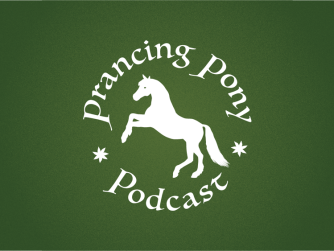We begin our reading of The Hobbit with the famous first line and meet Bilbo Baggins, living a predictable life of luxury and ease until Gandalf comes by one Tuesday morning. Soon Bilbo’s world is turned upside down by an unexpected party of hungry dwarves, and his comfortable life is threatened. Along the way, we discuss the enduring courtesy of hobbits, the dangers of saying “Good morning” to wizards, and offer fashion tips for homeless dwarves. Plus, the first installment of our new segment: Today in Tolkien History.
For more on the recent genealogical research into the Tolkien family conducted by Ryszard Derdzinski, please see Mr. Derdzinski’s blog at http://tolkniety.blogspot.com/ (bilingual: Polish/English)
Recommended Reading:
Tolkien, J. R. R. The Hobbit (Mariner Books, paperback) pp. 3-14, “An Unexpected Party”
Tolkien, J.R.R. and Douglas A. Anderson, ed. The Annotated Hobbit (HarperCollins, hardcover)



Oh my! I think you are entirely too hard on Frodo. When is the last time you all were comfortable having nine non-humans walk into your home and order their dinner, expecting you to provide for all their tastes with no offer to help? Ask your wives if they wouldn’t have some sympathy for Bilbo. I agree that there is an emphasis on the smallness of Bilbo’s life, along with great humor. However, keep in mind that this is the smallness of home that Tolkien values. You might consider eating off chipped plates acceptable…Hobbits do not. It’s not like they can order them on Amazon! ; )
Ha! Well said, Barbara… It’s been a while since we recorded this episode, so I don’t recall exactly what we said against poor Bilbo here, but we certainly do sympathize with him in the long run, and have nothing but respect for him and his hobbitish ways. Even providing for the tastes of two small humans with no offer to help is exhausting.
Thanks for a prompt response. In the long run, I think this develops the theme of the value of home. Bilbo’s home is invaded and he resents it. We have Gandalf’s perspective and can laugh more at his “irritability”. But just as Sam says, “I’m back” at the end of LOR, Bilbo returns to his home with a different perspective and appreciation of all that home means. He constantly thinks of his home on the journey. The adventure clarifies and increases the value of home in the story and on the part of the reader, including a safe place in which to long for more adventures. Adventures and the comfort of home balance each other, that is until Frodo is unable to find comfort in the Shire and takes his final journey leaving us to wonder.
Very well said!
As Americans we tend not to appreciate the delicate matter of class to an Englishman. Imagine a member of the landed gentry being ordered about by a bunch of commoners as if he were a mere publican and you’ll start to understand.
I think Bilbo accepts the Dwarves as his social equals. He just thinks they should improve their manners. Which to their credit they do.
In England “commoners” are anyone who isn’t titled aristocracy. Even Sir so-and-so is a commoner; only lords are not. This is different from other countries which have a generic nobility e.g. Germany with its “vons”. But yes, Bilbo is definitely a gentlehobbit – looking ahead, the Gaffer actually says this. On the auction notice he is Bilbo Baggins Esquire, which used to signify the same thing.
And publicans aren’t just barkeeps. They are referred to as “the landlord”, even if (as usual) they aren’t, or “mine host”.
So, this is a couple of years later, but I hear this now.
Hobbit society is kind of subtle. They do have social classes. Bilbo is gentry, lesser nobility, Merry and Pippin are aristocrats, as high as it gets in Hobbitland. Sam is as common as it gets. A peasant basically. These class differences are significant to hobbits. Pippin is from the most prestigious family of the Shire and everyone knows it. But still he interacts very friendly with Sam who is his social inferior by several tiers. There is not much arrogance and foppishness here. But still, these ranks do matter. I think it is an ideal of how nobility should be.
And of course, Thorin is a king. Bilbo doesn’t know that yet, and his kingship is purely titular at this stage, and Bilbo is probably much richer than Thorin, but Thorin is of considerably higher rank than Bilbo. All the other dwarves are his direct retainers. Bilbo must have sensed that these are not just mere rabble, given how subtle hobbit class structure is he should be sensitive for that. The golden belt might have been a clue.
53:10 “the rescue of princesses and the unexpected luck of widows’ sons”. There is a story in Andrew Lang’s Blue Fairy Book, ‘The Red Etin’, which has these elements. The Etin has three heads, and plays a riddle-game, and falls down dead when it loses.
I believe the parallel goes beyond plot-points. ‘The Red Etin’ is quite a moral tale. (The title is known from the 16th century, and it’s said to have been told to Mary Queen of Scots, but the text is Victorian). The hero succeeds because he is brave, generous and also prudent — rather like Bilbo. I don’t know if anyone has picked up on this.
That’s an interesting connection that I’ve never heard anyone mention before, Patrick. If anyone, it might be mentioned in Douglas Anderson’s _The Annotated Hobbit,_ but I don’t recall it from there. Thanks for catching that!